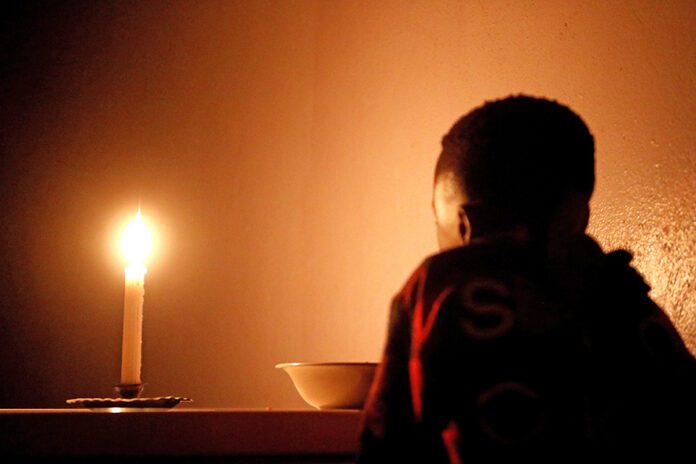Allegations of a sinister “load reduction conspiracy” involving Eskom technicians and storemen have rocked Mpumalanga.
This has prompted lawmakers to call for an urgent investigation into claims that officials are profiting from the power struggles of disadvantaged communities.
The call was made during a recent sitting of the Mpumalanga Provincial Legislature in Mbombela.
ANC lawmaker Lucky Mbuyane questioned Premier Mandla Ndlovu about persistent power cuts in areas such as Bushbuckridge, Nsikazi, and Nkomazi — even during periods when the national grid was stable.
Allegations against Eskom officials
Mbuyane argued that these outages could no longer be explained purely by technical faults. He suggested they may be the result of orchestrated corruption within Eskom’s ranks.
“There are serious allegations that Eskom officials, particularly technicians and storemen, are colluding with service providers to manipulate the ordering and distribution of transformers,” Mbuyane charged.
“We must get to the bottom of this. People are suffering while others make a living off their misery.”
For months since the suspension of load shedding, residents in affected areas have complained of erratic electricity supply under the term load reduction. This is a policy Eskom uses in zones with high levels of illegal connections and network overload.
However, Mbuyane and other lawmakers believe the policy is being exploited by corrupt insiders. They allegedly solicit bribes from desperate households after transformers blow due to overloading.
Eskom is investigating allegations
Premier Ndlovu confirmed that the allegations had reached his office. And he said Eskom is expected to investigate the matter thoroughly.
“Whenever corruption is alleged against Eskom employees, the organisation conducts internal investigations. Where officials are found guilty, appropriate disciplinary actions are taken,” Ndlovu said.
He added that Eskom would require specific details to act on cases not already reported.
Responding to a media enquiry, Eskom’s national media desk said Eskom was not aware of any allegation made against its employees for corruption in the implementation of load reduction.
“All allegations of improper conduct will be fully investigated as soon as they are reported.”
Electricity theft identified as main issue
Bushbuckridge Ward 8 Councillor Eddie Mashego said corruption allegations have circulated in his constituency. However, they are difficult to verify.
“There are residents who’ve admitted that some technicians demand bribes to restore their power. Usually after they’ve been caught using illegal tokens or not paying for electricity. When we advise them to report the matter to police, they refuse. And that is because they know they’ve also been stealing from Eskom,” Mashego said.
He added that transformer issues are a growing concern. Some areas in his ward owe Eskom more than R100,000 in meter tampering fines.
“While we’re not aware of any collusion between technicians and storemen, we do know that overloaded transformers often explode and leave communities in darkness,” he said.
“Then we, as leaders, are confronted by fuming residents. Eskom audits often find tampering in some households. And according to policy, the transformer won’t be replaced until the fine is paid. It’s painful, because innocent families suffer for the sins of others.”
Sanco confirms reasons for load reduction
Tshidiso Makhubedu, a South African National Civic Organisation (Sanco) leader in Bushbuckridge, said energy theft continues to undermine the struggle against load reduction.
“As Sanco, we took the matter all the way to Eskom’s national offices. And we confirmed that load reduction is an official strategy to combat energy theft and preserve infrastructure. We urge our people to buy electricity legally so that the cycle can end,” he said.
According to Eskom, load reduction is a preventative measure aimed at protecting the network from collapse.
Targets non-payers, not black people
But lawmakers argue that the policy is unfairly skewed against black communities in rural and informal areas. This while towns and suburbs rarely face such cuts.
Ndlovu said this disparity is linked to higher levels of illegal connections in poorer areas.
“Suburbs are less prone to illegal connections. And this means the infrastructure is under less strain,” he said.



